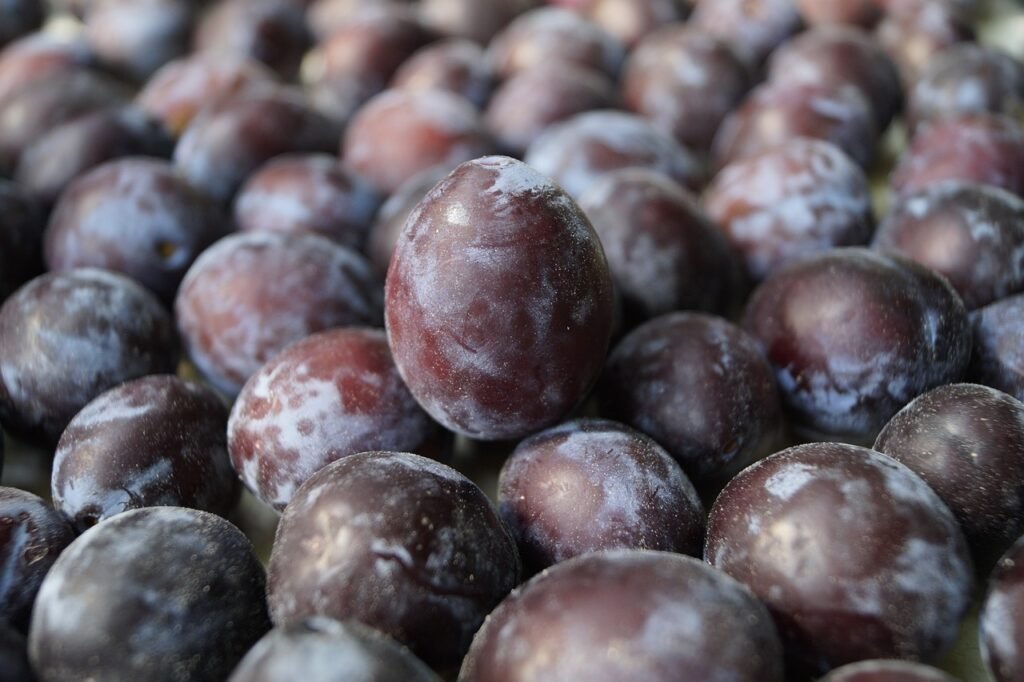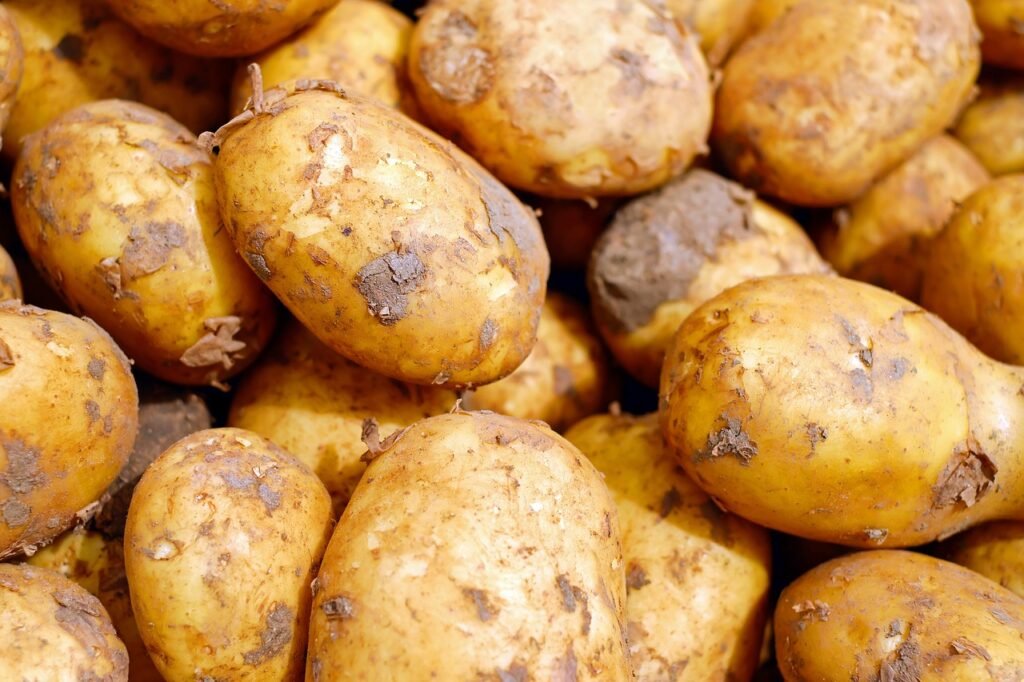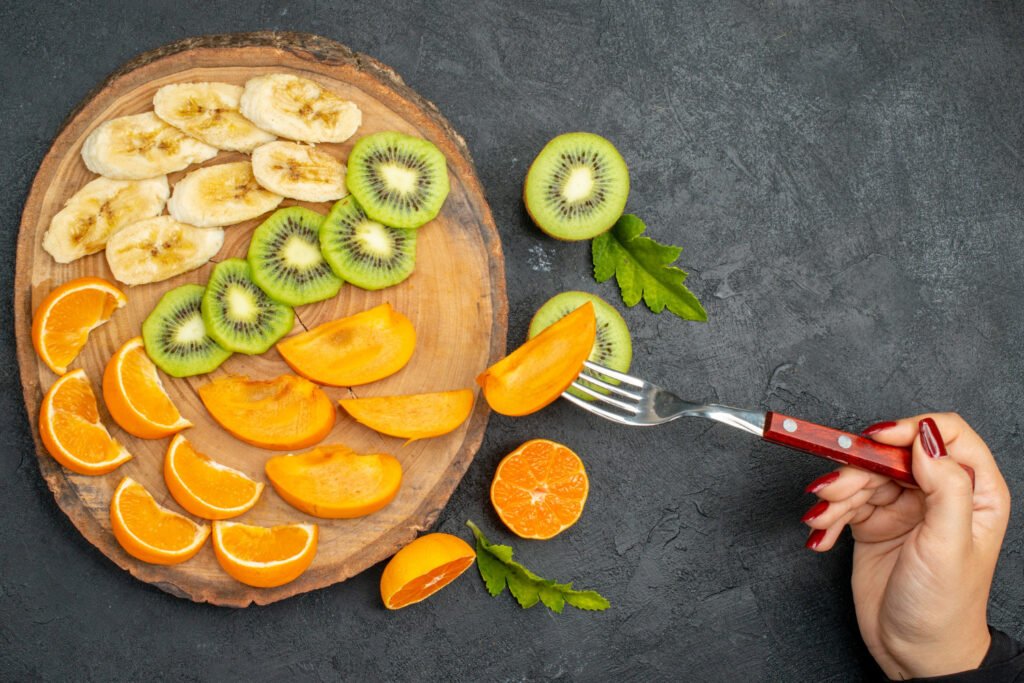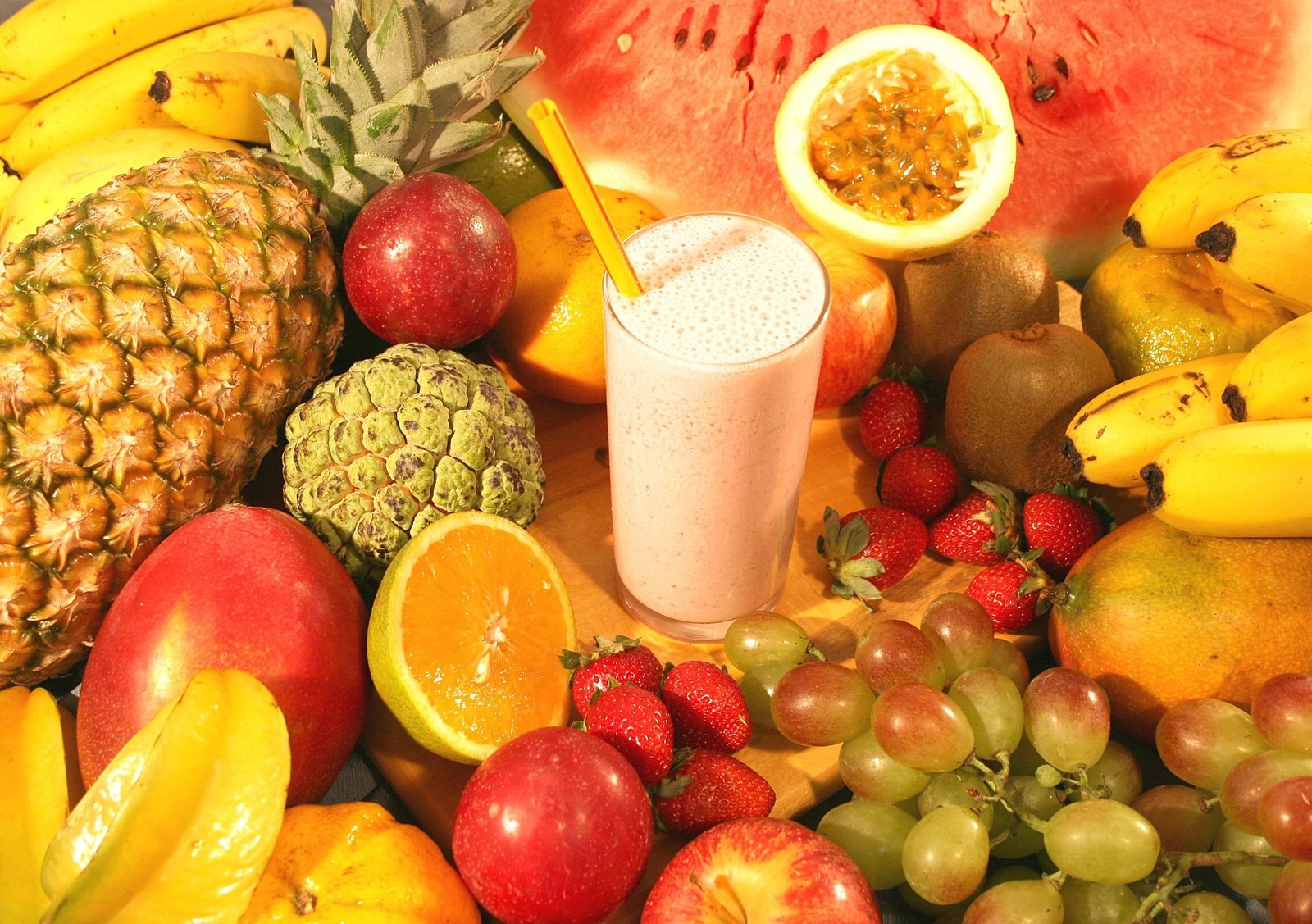Vitamin C Foods Benefits, Sources, and Recommendations Vitamin C is an essential nutrient that plays a crucial role in maintaining overall health. Renowned for its antioxidant properties, this water-soluble vitamin is indispensable for boosting immunity, supporting collagen production, aiding wound healing, and promoting cardiovascular health. As the human body cannot synthesize vitamin C, it must be obtained from dietary sources, primarily fruits and vegetables.
will delve into the importance of vitamin C, its health benefits, the best food sources, recommended daily intake, and practical tips for incorporating it into your diet
Related : Pineapple Juice Benefits
Why Is Vitamin C Important?
Vitamin C plays an integral role in numerous bodily functions, including
Boosting Immune Function: Enhances the body’s defense mechanisms against infections by supporting the production of white blood cells.
Collagen Production: Aids in skin health, wound healing, and maintaining the integrity of tissues.
Iron Absorption: Improves the absorption of non-heme iron from plant-based foods, reducing the risk of anemia.
Antioxidant Protection: Neutralizes free radicals and protects cells from oxidative stress.
Cardiovascular Health: Promotes healthy blood vessels and reduces inflammation, lowering the risk of heart disease.
Bone and Tooth Health: Contributes to the strength and maintenance of bones and teeth
Related : Cottage Cheese for Weight Loss
Recommended Daily Intake (RDI)
The recommended daily intake of vitamin C depends on factors like age, gender, and lifestyle
- Men (19+ years): 90 mg/day
- Women (19+ years): 75 mg/day
- Pregnant Individuals: 85 mg/day
- Breastfeeding Individuals: 120 mg/day
- Smokers: Add 35 mg/day to the standard RDI, as smoking depletes vitamin C levels.
Ensuring you meet these requirements is vital for optimal health and preventing deficiencies
Vitamin C Foods
Fruits Rich in Vitamin C

Fruits are some of the richest natural sources of vitamin C. Here are the top contenders:
Kakadu Plum
- Vitamin C Content: 2,907 mg per 100 g
Known as the richest source of vitamin C, one plum provides 484% of the daily value (DV).
Acerola Cherry
- Vitamin C Content: 825 mg per ½ cup
Offers a staggering 916% of the DV.
Guava
- Vitamin C Content: 376 mg per cup
Also rich in lycopene, which supports heart health and reduces blood pressure.
- Vitamin C Content: 134 mg per cup
Packed with antioxidants and anti-inflammatory compounds.
Strawberries
- Vitamin C Content: 98 mg per cup
Provides additional nutrients like potassium and calcium.
Oranges
- Vitamin C Content: 70 mg per fruit
A classic, accessible source of this vital nutrient.
Papaya
- Vitamin C Content: 88 mg per cup
Known for its antioxidant and anti-aging benefits.
Pineapple
- Vitamin C Content: 78.9 mg per cup
Contains bromelain, which aids digestion and reduces inflammation
Related : cottage cheese is good for you
Vegetables Rich in Vitamin C

Vegetables are also excellent sources of vitamin C. Below are some of the best options:
Sweet Yellow Peppers
- Vitamin C Content: 342 mg per large pepper
- Vitamin C levels increase as the peppers mature.
Broccoli
- Vitamin C Content: 81.2 mg per cup
- Offers anti-inflammatory and heart-protective properties.
Brussels Sprouts
- Vitamin C Content: 48 mg per ½ cup cooked
- High in fiber and antioxidants.
Chili Peppers
- Vitamin C Content: 109 mg per green chili
- Also rich in vitamins A and B.
Cabbage
- Vitamin C Content: 28 mg per ½ cup cooked
- Promotes digestive health and is easy to incorporate into meals.
Spinach
- Vitamin C Content: 17.6 mg per cooked cup
- A nutrient-dense option that also provides iron.
Related : Worst Foods to Eat When You Have a Cold
Vitamin C Foods for Low Acidity

For individuals who need to avoid highly acidic foods, these options are ideal
- Broccoli
- Cauliflower
- Sweet Potatoes
- Spinach
- Papayas
These foods provide substantial vitamin C without causing acidity-related discomfort.
Symptoms of Vitamin C

A deficiency in vitamin C can lead to scurvy, a condition characterized by:
- Fatigue and weakness
- Bleeding gums and tooth loss
- Joint pain
- Poor wound healing
- Anemia
- Depression
Early detection and dietary changes can reverse these symptoms
Related : 10 Best Fruits for Weight Loss
Health Benefits of Vitamin C

Boosts Immunity
- Helps reduce the severity and duration of colds.
Improves Skin Health
- Promotes collagen synthesis, reducing wrinkles and enhancing elasticity.
Supports Cardiovascular Health
- Reduces inflammation and improves arterial function.
Protects Vision
- May slow the progression of age-related macular degeneration and cataracts.
Enhances Brain Health
- Supports neurotransmitter function and may reduce cognitive decline
Practical Tips to Increase Vitamin C Intake

Include Fruits in Breakfast
- Add strawberries, kiwi, or oranges to your morning meal.
Snack on Raw Vegetables
- Munch on sweet yellow peppers or broccoli as a healthy snack.
Prepare Vitamin C-Rich Smoothies
- Blend guavas, papayas, and spinach for a nutrient-packed drink.
Incorporate Vegetables into Meals
- Add Brussels sprouts, cabbage, or kale to soups and stir-fries.
Choose Fresh Over Processed Foods
- Fresh fruits and vegetables retain higher levels of vitamin C compared to processed options.
Related : Can Coffee Cause Heart Attacks?
The Takeaway
Vitamin C is an indispensable nutrient with a wide array of health benefits, from bolstering the immune system to enhancing skin and cardiovascular health. Incorporating vitamin C-rich foods like Kakadu plums, guavas, broccoli, and sweet yellow peppers into your daily diet ensures you meet your nutritional needs while reaping these benefits.
Start making conscious choices to add these nutrient-packed foods to your meals today, and enjoy the rewards of better health and vitality. Take the first step towards a healthier lifestyle—your body will thank you
Related : Which Fruits Have the Most Sugar?
Frequently Asked Questions
What are the best natural sources of vitamin C?
The best natural sources of vitamin C include fruits like Kakadu plums, acerola cherries, guavas, kiwis, and oranges, as well as vegetables like sweet yellow peppers, broccoli, and Brussels sprouts.
Can too much vitamin C be harmful?
Excessive vitamin C intake (over 2,000 mg/day for adults) can cause side effects like diarrhea, nausea, stomach cramps, and kidney stones. It’s best to stay within the recommended daily intake unless advised otherwise by a healthcare professional.
How does vitamin C benefit the skin?
Vitamin C promotes collagen production, which helps maintain skin elasticity, reduces wrinkles, and enhances overall skin health. It also protects the skin from damage caused by free radicals.
Is vitamin C effective in preventing colds?
Vitamin C does not prevent colds, but regular intake may reduce the severity and duration of symptoms by boosting immune function.
What are the symptoms of vitamin C deficiency?
Symptoms of vitamin C deficiency include fatigue, bleeding gums, joint pain, poor wound healing, anemia, and, in severe cases, scurvy.
Can cooking destroy vitamin C in foods?
Yes, vitamin C is sensitive to heat, light, and air. Cooking methods like boiling can significantly reduce its content. To retain more vitamin C, opt for steaming or eating raw fruits and vegetables.

 Dakari Quimby, PhD
Dakari Quimby, PhD Keri Peterson, MD
Keri Peterson, MD Isabel Vasquez, RD, LDN
Isabel Vasquez, RD, LDN Francisco J. Rivera Rosario
Francisco J. Rivera Rosario Amber Brenza, CPT
Amber Brenza, CPT Dana Ingemann, MPH, CHES
Dana Ingemann, MPH, CHES
8 thoughts on “Vitamin C Foods Benefits, Sources, and Recommendations”
Pingback: Protein in One Egg Yolk: Nutritional Facts & Health Benefits
Can you be more specific about the content of your article? After reading it, I still have some doubts. Hope you can help me.
Your article helped me a lot, is there any more related content? Thanks!
Your point of view caught my eye and was very interesting. Thanks. I have a question for you.
Can you be more specific about the content of your article? After reading it, I still have some doubts. Hope you can help me.
Thanks for sharing. I read many of your blog posts, cool, your blog is very good.
Thank you for your sharing. I am worried that I lack creative ideas. It is your article that makes me full of hope. Thank you. But, I have a question, can you help me?
Thanks for sharing. I read many of your blog posts, cool, your blog is very good.